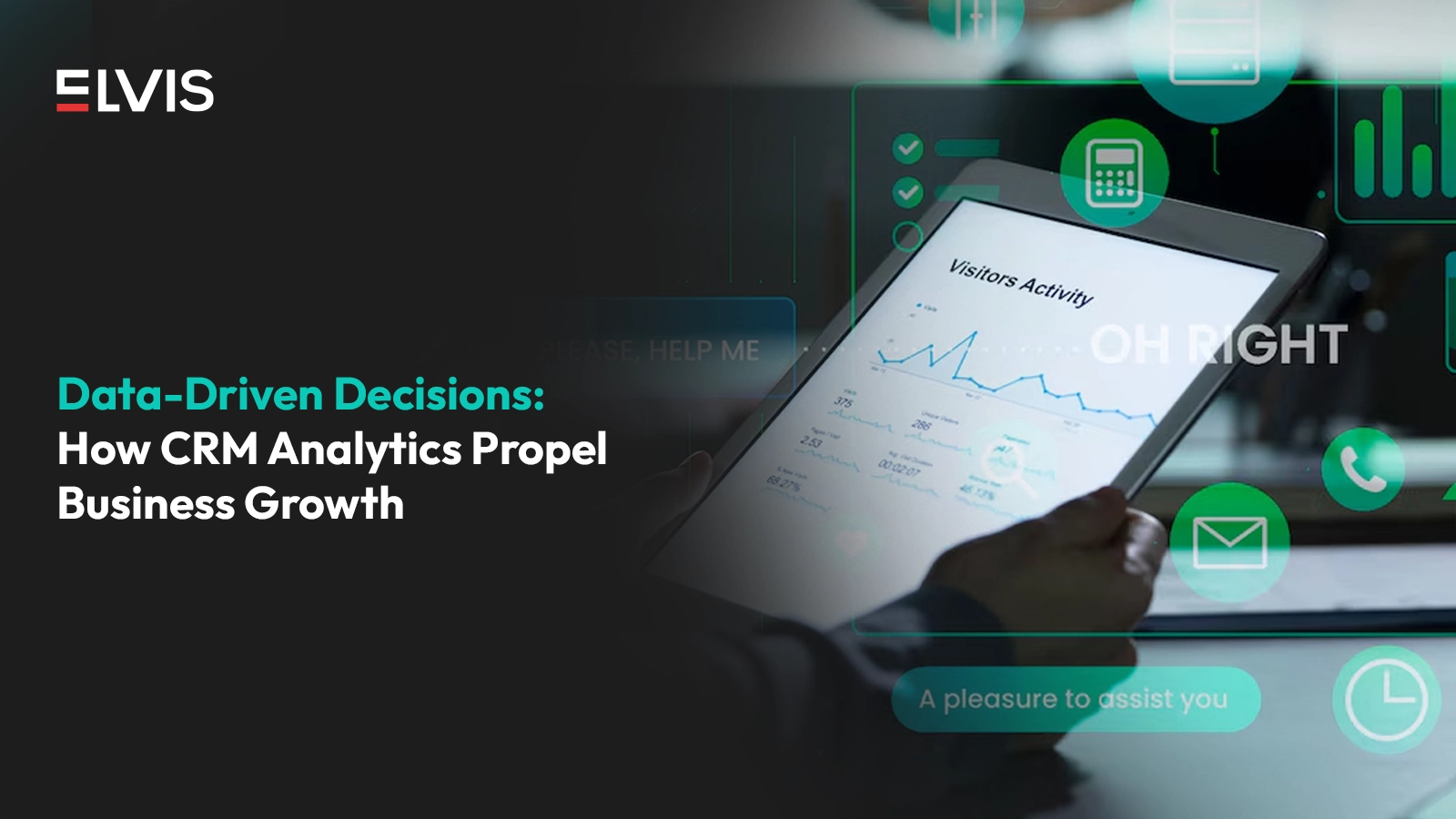Introduction
In today’s data-driven world, businesses are drowning in information. But what separates successful companies from the rest is their ability to transform this data into actionable insights. This is where CRM analytics comes in. By leveraging the power of your CRM system, you can unlock a goldmine of customer data and use it to fuel strategic decision-making and propel your business toward significant growth.
What is CRM Analytics?
CRM (Customer Relationship Management) software is no longer just a glorified rolodex. Modern CRMs collect a vast amount of data on your customers, their interactions, and their preferences. CRM analytics takes this data a step further by analyzing it to identify trends, patterns, and valuable customer insights.
How CRM Analytics Drives Growth
Here are just a few ways CRM analytics can propel your business growth:
-
Sharper Customer Segmentation: CRM analytics helps you understand your customers on a deeper level. By segmenting them based on demographics, purchase history, and behavior, you can tailor your marketing messages and offerings to resonate with specific groups. This targeted approach leads to higher conversion rates and increased customer satisfaction.
-
Sales Pipeline Optimization: CRM analytics empowers your sales team by tracking their progress through the sales funnel. You can identify bottlenecks, understand where leads drop off, and adjust your sales strategies accordingly. This data-driven approach streamlines the sales process and boosts conversion rates.
-
Improved Customer Experience: By analyzing customer interactions and feedback, you can identify areas for improvement in your customer service. This could be anything from streamlining your checkout process to providing more personalized support. A positive customer experience fosters loyalty and keeps customers coming back for more.
-
Data-Driven Forecasting: CRM analytics allows you to analyze historical sales data and customer behavior to predict future trends. This enables you to make informed decisions about inventory management, resource allocation, and marketing campaigns. Accurate forecasting helps you stay ahead of the curve and optimize your business operations.
-
Enhanced Product Development: By understanding your customers’ needs and preferences through CRM data, you can develop products and services that truly resonate with them. This data-driven approach reduces the risk of product flops and ensures you’re developing solutions that your target market wants.
The Benefits of Data-Driven Customer Relationships
By leveraging CRM analytics, businesses can experience a range of benefits, including:
- Increased Sales and Revenue: By understanding your customers better, you can tailor your offerings and marketing campaigns to their specific needs, ultimately leading to more sales and increased revenue.
- Improved Customer Satisfaction: Data-driven insights enable you to personalize the customer experience, anticipate their needs, and proactively address any issues. This results in happier, more satisfied customers who are more likely to stay loyal to your brand.
- Enhanced Decision-Making: CRM analytics equips you with the data you need to make informed decisions across all aspects of your business. From marketing strategies to product development, data-driven decision-making leads to better outcomes and a competitive edge.
Getting Started with CRM Analytics
If you’re ready to unlock the power of CRM analytics, here are some steps to get you started:
- Define Your Goals: What do you hope to achieve with CRM analytics? Identify key performance indicators (KPIs) to track your progress.
- Cleanse Your Data: Ensure the data in your CRM system is accurate and up-to-date for reliable analytics.
- Invest in the Right Tools: There are various CRM analytics tools available, choose one that integrates seamlessly with your existing CRM system and offers the functionalities you need.
- Develop a Reporting Strategy: Establish clear reporting practices to regularly analyze your data and translate insights into actionable strategies.
Conclusion
In the age of information, data is king. By harnessing the power of CRM analytics, businesses can transform customer data into a powerful tool for growth. By gaining a deeper understanding of their customers, businesses can make data-driven decisions that optimize sales, marketing, and customer service, ultimately propelling them toward long-term success.
Frequently Asked Questions (FAQs)
What are some common CRM analytics metrics?
Common metrics include sales pipeline value, customer acquisition cost, customer lifetime value, lead conversion rates, and customer satisfaction scores.
How can CRM analytics help with marketing campaigns?
By analyzing customer demographics, purchase history, and website behavior, CRM analytics helps identify target audiences for specific campaigns. You can then personalize your messaging and offers to resonate better with each segment, leading to higher engagement and campaign effectiveness.
Is CRM analytics difficult to implement?
The complexity depends on your existing CRM system and the chosen analytics tool. Many CRM platforms offer built-in analytics features, while others integrate seamlessly with third-party tools. Start by defining your goals and choosing a solution that meets your needs.
What are some challenges associated with CRM analytics?
Data quality is crucial. Ensure your CRM data is accurate and up-to-date to avoid basing decisions on faulty information. Additionally, understanding and interpreting the data requires some training, especially for complex analytics tools.
How can I ensure I’m using CRM analytics effectively?
Focus on clear goals and track relevant KPIs to measure progress. Regularly review your data and translate insights into actionable strategies. Don’t be afraid to experiment and refine your approach based on what works best for your business.








